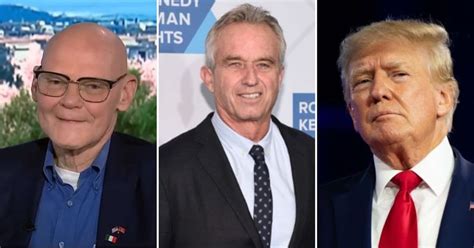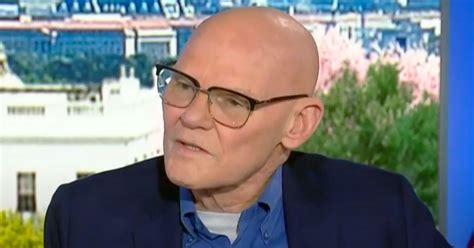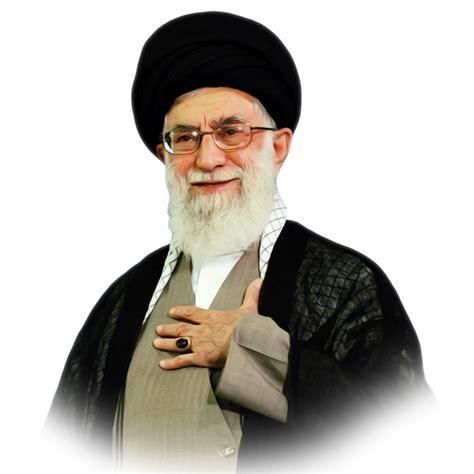
James Carville has strongly criticized recent remarks suggesting John F. Kennedy Jr. is still alive and planning to reinstate Donald Trump as president, calling them “crazy” and warning that such conspiracy theories will inflict more damage on the country than any government official ever could.
Democratic strategist James Carville has vehemently denounced the resurgence of a conspiracy theory claiming that John F. Kennedy Jr., who died in a plane crash in 1999, is still alive and poised to reinstate Donald Trump as president. In an interview, Carville described the belief as “crazy” and asserted that it poses a greater threat to the nation than any Secretary of any department could ever inflict. His comments reflect growing concern over the spread of misinformation and its potential to destabilize the political landscape.
Carville, a prominent figure in Democratic politics for decades, didn’t mince words when addressing the fringe theory. “This is crazy stuff. This is far more dangerous than any Secretary of Transportation, or any Secretary of Housing, or any White House Counsel, or anything,” Carville stated. “This is people believing in absolute and total horseshit.” He emphasized the gravity of the situation, suggesting that widespread belief in such unfounded claims could have dire consequences for the country’s stability and future.
The conspiracy theory, often associated with the QAnon movement, alleges that JFK Jr. faked his death and is secretly working to expose a cabal of corrupt elites. Adherents to this theory often gather at Trump rallies, waiting for Kennedy’s supposed reappearance and the anticipated “storm” that will sweep away Trump’s political opponents. The persistent belief in this narrative highlights the deep-seated distrust in institutions and the susceptibility of some individuals to misinformation.
Carville’s concern stems from the broader impact of such beliefs on the political discourse and public trust. The perpetuation of conspiracy theories undermines the credibility of legitimate news sources, fuels polarization, and can even incite violence. By openly condemning the JFK Jr. theory, Carville aims to challenge the spread of misinformation and encourage critical thinking among the public.
The resurgence of the JFK Jr. conspiracy theory underscores the ongoing challenge of combating misinformation in the digital age. Social media platforms have played a significant role in amplifying these narratives, making it difficult to contain their spread. Experts warn that the lack of media literacy and the echo chamber effect of online communities contribute to the entrenchment of these beliefs.
The phenomenon also highlights the enduring appeal of charismatic figures and the human desire for simple explanations in a complex world. JFK Jr., like his father, remains a symbol of hope and potential for many Americans. The conspiracy theory taps into this sentiment, offering a fantastical narrative that promises a return to a perceived golden age.
While Carville’s remarks focus on the JFK Jr. theory, they also serve as a broader critique of the role of misinformation in contemporary society. He argues that the uncritical acceptance of false claims threatens the foundations of democracy and hinders the ability to address pressing challenges facing the nation.
“This is not some harmless thing,” Carville emphasized. “This is people actively choosing to believe in things that are demonstrably false, and that has real-world consequences.”
Political analysts suggest that Carville’s strong condemnation reflects a growing sense of urgency among Democrats to combat the spread of misinformation. As the 2024 election approaches, there is a heightened concern that conspiracy theories and false narratives could further polarize the electorate and undermine faith in the democratic process.
The prevalence of the JFK Jr. conspiracy theory also raises questions about the mental health and social isolation of those who subscribe to it. Experts suggest that individuals who feel disconnected from mainstream society may be more vulnerable to these narratives, which offer a sense of belonging and purpose.
Carville’s remarks have sparked debate among political commentators and social media users. Some have praised his willingness to speak out against misinformation, while others have criticized his blunt language. However, his comments have undoubtedly brought attention to the issue and sparked a broader discussion about the dangers of conspiracy theories.
The spread of misinformation poses a significant threat to informed decision-making and social cohesion. It is crucial for individuals to critically evaluate information, rely on credible sources, and engage in respectful dialogue to counter the influence of false narratives. Carville’s remarks serve as a reminder of the importance of vigilance and critical thinking in the face of misinformation.
The persistence of the JFK Jr. conspiracy theory also highlights the need for greater media literacy education. By teaching individuals how to identify and evaluate information sources, we can empower them to resist the allure of misinformation and make informed decisions.
Carville concluded, “We need to be honest with ourselves about the fact that there are people out there who are actively trying to undermine our democracy by spreading lies and misinformation.”
The implications of Carville’s statement extend beyond the immediate context of the JFK Jr. conspiracy theory. They touch upon broader issues related to trust in institutions, the role of social media in disseminating information, and the importance of critical thinking in a rapidly changing world.
The spread of conspiracy theories is not limited to the United States. Similar narratives have gained traction in other countries, often targeting specific political leaders or events. This global phenomenon underscores the need for international cooperation in combating misinformation and promoting media literacy.
Carville’s remarks also raise questions about the responsibility of social media platforms to combat the spread of misinformation. While some platforms have taken steps to flag or remove false content, critics argue that more needs to be done to prevent the amplification of these narratives.
The challenge of combating misinformation is complex and multifaceted. It requires a collaborative effort involving governments, media organizations, educational institutions, and individuals. By working together, we can create a more informed and resilient society that is less susceptible to the influence of false narratives.
The rise of conspiracy theories is often attributed to a combination of factors, including social isolation, economic insecurity, and a lack of trust in institutions. Addressing these underlying issues is crucial for preventing the further spread of misinformation.
Carville’s comments have resonated with many Americans who are concerned about the state of political discourse and the erosion of trust in institutions. His willingness to speak out against misinformation has been praised as a sign of leadership and a call to action.
The debate over the JFK Jr. conspiracy theory highlights the deep divisions that exist within American society. These divisions are often fueled by misinformation and a lack of understanding across different perspectives.
The spread of misinformation poses a significant threat to the integrity of elections. False narratives can influence voters’ decisions and undermine faith in the democratic process.
Combating misinformation requires a multi-pronged approach that includes media literacy education, fact-checking initiatives, and greater accountability for social media platforms.
Carville’s remarks serve as a reminder of the importance of engaging in respectful dialogue and seeking common ground, even in the face of disagreement.
The JFK Jr. conspiracy theory is just one example of the many false narratives that are circulating online. It is crucial for individuals to be vigilant and critically evaluate the information they encounter.
The spread of misinformation is a global problem that requires international cooperation to address.
Carville’s comments have sparked a broader discussion about the role of misinformation in contemporary society.
The challenge of combating misinformation is complex and multifaceted, requiring a collaborative effort involving governments, media organizations, educational institutions, and individuals.
The rise of conspiracy theories is often attributed to a combination of factors, including social isolation, economic insecurity, and a lack of trust in institutions.
Carville’s remarks have resonated with many Americans who are concerned about the state of political discourse and the erosion of trust in institutions.
The debate over the JFK Jr. conspiracy theory highlights the deep divisions that exist within American society.
The spread of misinformation poses a significant threat to the integrity of elections.
Combating misinformation requires a multi-pronged approach that includes media literacy education, fact-checking initiatives, and greater accountability for social media platforms.
Carville’s remarks serve as a reminder of the importance of engaging in respectful dialogue and seeking common ground, even in the face of disagreement.
The JFK Jr. conspiracy theory is just one example of the many false narratives that are circulating online.
The spread of misinformation is a global problem that requires international cooperation to address.
Carville’s comments have sparked a broader discussion about the role of misinformation in contemporary society.
The persistence of this specific conspiracy theory, along with countless others, speaks to a broader societal issue: the erosion of trust in established institutions and the rise of alternative narratives, often fueled by social media and online echo chambers. This trend is not unique to the United States, and its implications are far-reaching, impacting everything from political discourse to public health.
Carville’s strong language reflects the frustration felt by many who see these conspiracy theories as a direct threat to reason and informed debate. The comparison to the potential harm caused by government officials is particularly striking, suggesting that the unchecked spread of misinformation can be more damaging to the fabric of society than individual acts of corruption or incompetence.
The challenge lies in effectively countering these narratives without further polarizing the population or infringing on freedom of speech. Fact-checking initiatives, media literacy education, and responsible platform moderation are all crucial components of a comprehensive strategy, but they must be implemented in a way that respects diverse perspectives and avoids the appearance of censorship.
Ultimately, addressing the root causes of this phenomenon – the feelings of alienation, disenfranchisement, and lack of trust that drive individuals to seek alternative explanations – is essential for building a more resilient and informed society. This requires fostering a sense of community, promoting critical thinking skills, and ensuring that all voices are heard and respected in the public square.
The long-term effects of widespread belief in conspiracy theories are difficult to predict, but the potential consequences are significant. A society where facts are contested and truth is subjective is a society vulnerable to manipulation and division. Carville’s warning serves as a call to action, urging individuals to engage critically with information, support credible news sources, and resist the allure of simplistic and unfounded narratives.
The issue also touches upon the psychology of belief and the human need for certainty. In a world of increasing complexity and uncertainty, conspiracy theories can offer a sense of order and control, providing simple explanations for complex events. Understanding these psychological factors is crucial for developing effective strategies for combating misinformation and promoting critical thinking.
Furthermore, the role of political leaders in either perpetuating or debunking conspiracy theories cannot be overstated. Leaders who amplify false narratives for political gain contribute to the erosion of trust and the polarization of society. Conversely, leaders who consistently uphold truth and reason can help to restore faith in institutions and promote a more informed public discourse.
The conversation surrounding the JFK Jr. conspiracy theory is a microcosm of a larger struggle for truth and reason in the digital age. It highlights the challenges of navigating a complex information landscape, the importance of critical thinking skills, and the need for a renewed commitment to factual accuracy and informed debate. James Carville’s forceful condemnation serves as a reminder that the fight against misinformation is not just a political battle, but a fundamental defense of the principles of reason, truth, and democracy.
Frequently Asked Questions (FAQ):
1. What exactly is the JFK Jr. conspiracy theory that James Carville is criticizing?
The JFK Jr. conspiracy theory, often associated with the QAnon movement, claims that John F. Kennedy Jr. did not die in a plane crash in 1999 but instead faked his death. The theory posits that he is secretly working to expose a cabal of corrupt elites and will eventually reappear to reinstate Donald Trump as president. Believers in this theory often gather at Trump rallies, anticipating Kennedy’s return.
2. Why is James Carville so concerned about this conspiracy theory?
Carville believes that the widespread acceptance of such unfounded claims poses a significant threat to the stability and future of the country. He argues that it undermines the credibility of legitimate news sources, fuels political polarization, and can even incite violence. He views it as a dangerous form of misinformation that actively undermines democracy. He stated, “This is crazy stuff. This is far more dangerous than any Secretary of Transportation, or any Secretary of Housing, or any White House Counsel, or anything. This is people believing in absolute and total horseshit.”
3. What does Carville mean when he says this is “far more dangerous” than any government official?
Carville’s statement emphasizes the potential for widespread belief in misinformation to cause more damage than the actions of individual government officials. He suggests that the erosion of trust in institutions, the polarization of society, and the incitement of violence resulting from these beliefs can have more far-reaching and detrimental consequences than the actions of any single person in power.
4. What role do social media platforms play in the spread of this conspiracy theory?
Social media platforms have been identified as playing a significant role in amplifying the JFK Jr. conspiracy theory and other forms of misinformation. The platforms’ algorithms can create echo chambers where users are primarily exposed to information confirming their existing beliefs, making it difficult to encounter opposing viewpoints or fact-based information. This can lead to the entrenchment of false beliefs and the further spread of misinformation.
5. What can be done to combat the spread of misinformation and conspiracy theories like this?
Combating misinformation requires a multi-pronged approach. This includes:
- Media Literacy Education: Teaching individuals how to critically evaluate information sources and identify false or misleading content.
- Fact-Checking Initiatives: Supporting organizations that verify the accuracy of information and debunk false claims.
- Responsible Platform Moderation: Encouraging social media platforms to take steps to flag or remove false content and prevent the amplification of misinformation.
- Promoting Critical Thinking: Encouraging individuals to question assumptions, consider different perspectives, and rely on evidence-based reasoning.
- Addressing Root Causes: Addressing the underlying issues of social isolation, economic insecurity, and lack of trust in institutions that can make individuals more vulnerable to misinformation.
- Engaging in Respectful Dialogue: Promoting respectful conversations across different viewpoints to foster understanding and bridge divides.
- Supporting Credible News Sources: Relying on reputable news organizations that adhere to journalistic standards of accuracy and objectivity.
Further Expansion and Contextualization:
The situation involving Carville’s remarks and the persistent JFK Jr. conspiracy highlights a critical juncture in contemporary societal discourse. It is not merely about one particular conspiracy theory, however outlandish it may seem to some, but rather about the broader implications of a post-truth era where facts are increasingly subjective and manipulated to fit pre-conceived narratives. This phenomenon erodes the foundations of informed decision-making, civic engagement, and ultimately, democratic governance.
One of the key contributing factors to the propagation of such theories is the increasing fragmentation of media consumption. In the past, a limited number of established news outlets served as gatekeepers, ensuring a certain level of accuracy and objectivity. Today, with the rise of social media and alternative news sources, individuals are increasingly exposed to information tailored to their existing beliefs, creating echo chambers that reinforce biases and make it difficult to encounter dissenting views. This fragmentation is further exacerbated by the deliberate spread of disinformation by malicious actors, both domestic and foreign, who seek to sow discord and undermine trust in institutions.
Another factor at play is the growing sense of disillusionment and alienation among certain segments of the population. Economic inequality, political polarization, and a perceived lack of representation have fueled a sense of resentment and distrust towards elites and established institutions. In this environment, conspiracy theories can provide a sense of empowerment and belonging, offering simple explanations for complex problems and uniting individuals around a shared narrative, however unfounded it may be. This is particularly true for those who feel marginalized or ignored by mainstream society.
Moreover, the inherent psychological biases that shape human cognition play a significant role in the appeal of conspiracy theories. Confirmation bias, the tendency to seek out information that confirms existing beliefs while ignoring contradictory evidence, makes individuals more susceptible to accepting narratives that align with their pre-conceived worldview. Similarly, the illusory truth effect, the tendency to believe that information is true after repeated exposure, can make even the most outlandish claims seem plausible over time. The human brain is wired to seek patterns and explanations, even when none exist, making it vulnerable to the allure of conspiracy theories that offer a sense of order and control in a chaotic world.
Addressing this complex challenge requires a multi-faceted approach that targets both the supply and demand sides of misinformation. On the supply side, efforts must be made to hold social media platforms accountable for the content they host, promoting greater transparency and responsible moderation. This includes implementing stricter content policies, investing in fact-checking initiatives, and combating the spread of bots and fake accounts that amplify disinformation. At the same time, it is crucial to protect freedom of speech and avoid censorship, striking a delicate balance between combating harmful content and preserving open dialogue.
On the demand side, media literacy education is essential for empowering individuals to critically evaluate information and resist the allure of conspiracy theories. This includes teaching students how to identify credible sources, recognize logical fallacies, and distinguish between fact and opinion. It also requires promoting critical thinking skills and encouraging individuals to question assumptions and consider different perspectives. Moreover, efforts must be made to address the underlying social and economic factors that contribute to disillusionment and alienation, fostering a sense of community and belonging that makes individuals less vulnerable to the appeal of extremist ideologies.
Furthermore, political leaders and public figures have a crucial role to play in combating misinformation. By consistently upholding truth and reason, condemning false narratives, and promoting informed debate, they can help to restore faith in institutions and promote a more responsible public discourse. Conversely, leaders who amplify conspiracy theories for political gain contribute to the erosion of trust and the polarization of society, undermining the foundations of democracy. It’s important to note, though, that simply debunking a conspiracy theory is often insufficient. The “backfire effect” suggests that directly refuting someone’s beliefs can sometimes strengthen them, as people tend to dig in their heels when challenged. A more effective approach often involves understanding the underlying motivations and emotions driving the belief and addressing them in a compassionate and respectful manner.
In conclusion, the resurgence of the JFK Jr. conspiracy theory, as highlighted by James Carville’s remarks, is a symptom of a broader societal crisis characterized by the erosion of trust, the fragmentation of media consumption, and the rise of misinformation. Addressing this challenge requires a multi-faceted approach that targets both the supply and demand sides of misinformation, promoting media literacy, fostering critical thinking, and addressing the underlying social and economic factors that contribute to disillusionment and alienation. Political leaders, media organizations, educational institutions, and individuals all have a role to play in building a more resilient and informed society that is less susceptible to the allure of conspiracy theories and more committed to the principles of truth, reason, and democracy. This fight requires vigilance, commitment, and a deep understanding of the psychological and social forces at play.









